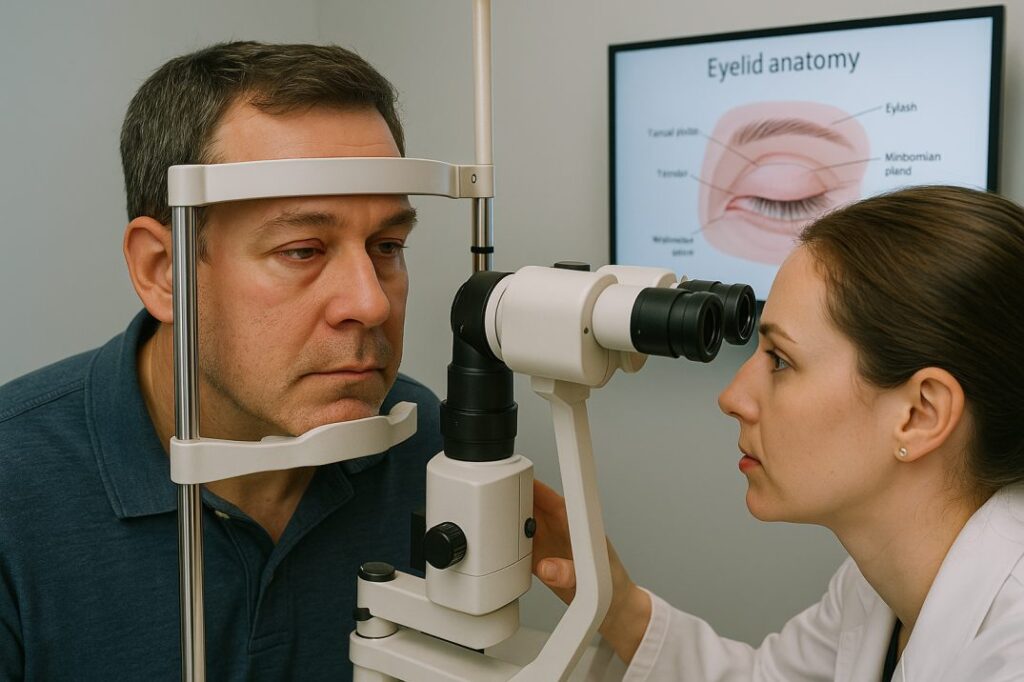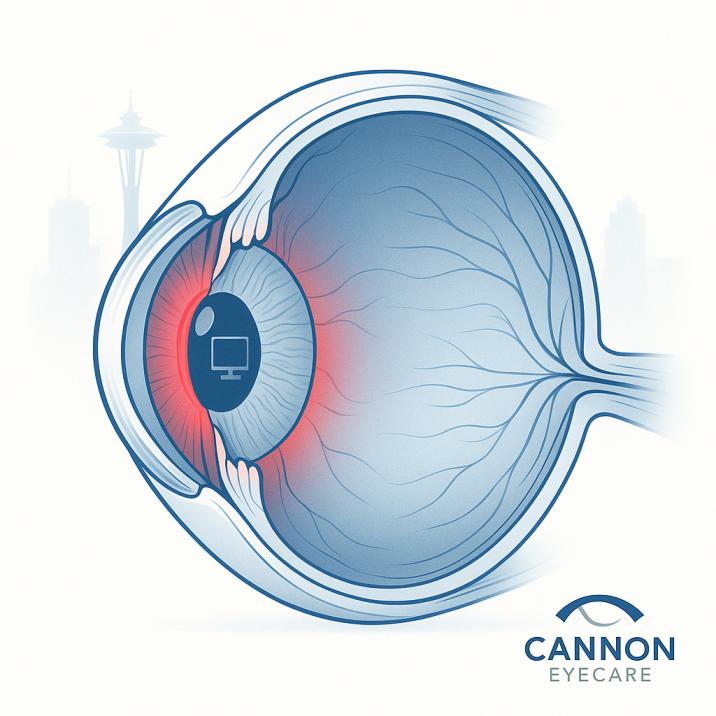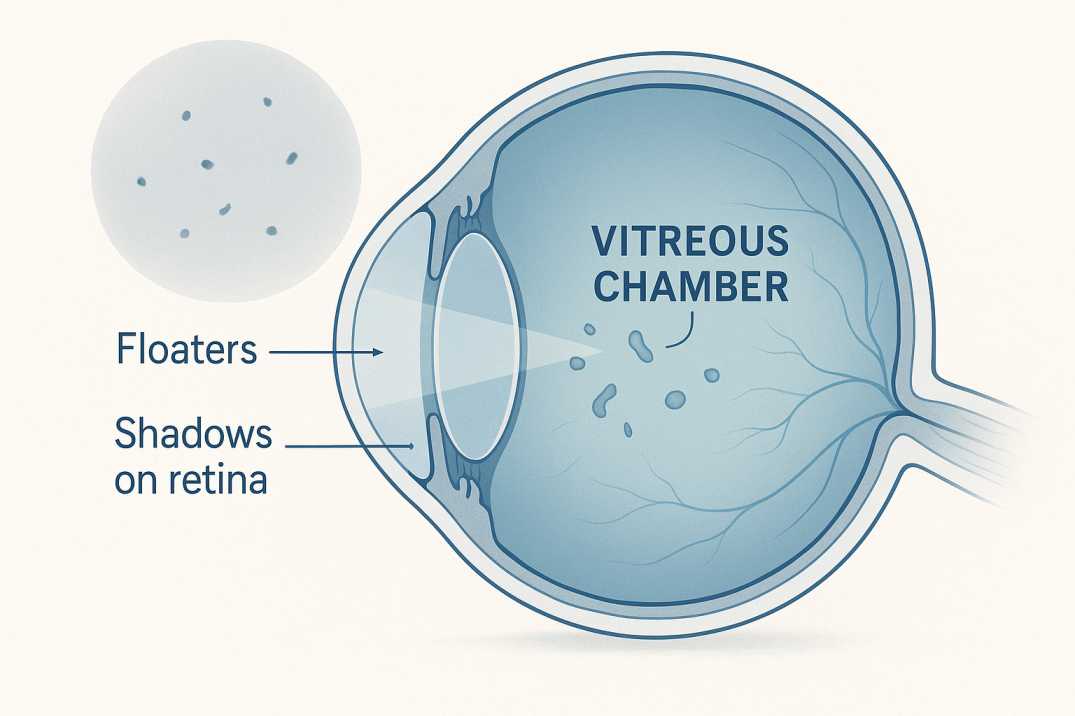Swollen Eyelids: Causes, Symptoms & Care in Seattle
What Are Swollen Eyelids? Symptoms & Causes Explained
Swollen eyelids occur when excess fluid (edema) builds up in eyelid tissues. This common condition may affect one or both eyes and often includes redness, pain, itching, or discharge. Our eyelids are delicate structures—layers of skin, oil glands, and muscle—making them vulnerable to allergies, infections, injuries, and Seattle’s humid climate. At Cannon EyeCare, we see these cases daily across the Pacific Northwest.
Top Causes of Swollen Eyelids in Seattle
Swollen eyelids signal an underlying issue, not a standalone disease. At Cannon EyeCare in Seattle, we diagnose these frequent causes:
-
Allergies: Cedar pollen, mold (common in Seattle’s damp springs), dust mites, or cosmetics.
-
Infections: Bacterial styes, viral pink eye, or fungal growth.
-
Blocked Glands: Chalazion (oil-gland lump) or styes.
-
Chronic Blepharitis: Eyelid inflammation with crusting.
-
Injuries: Rubbing, insect bites, or trauma.
-
Contact Lens Irritation: Overuse or poor hygiene.
-
Systemic Conditions: Thyroid disorders (e.g., Graves’ disease), kidney issues, or autoimmune diseases.
Swollen Eyelid Symptoms & When to Seek Emergency Eye Care in Seattle
Swollen eyelids present differently based on their underlying cause. At Cannon EyeCare, we categorize symptoms as follows:
-
Mild Swelling: Puffiness with slight redness (typically pain-free).
-
Painful Inflammation: Often indicates infections like styes.
-
Itching: Frequently allergy-related (e.g., Seattle’s pollen/mold peaks).
-
Redness: Signals irritation or infection.
-
Discharge: Yellow/green = infection; clear = allergy.
-
Vision Changes: Blurriness or light sensitivity (requires urgent care).
Critical Warning Signs – Visit Our Seattle Clinic IMMEDIATELY If You Experience:
-
Sudden vision loss or double vision
-
Severe pain/inability to move the eye
-
Fever, chills, or systemic illness
-
Bulging eyes or rapidly spreading swelling
-
Symptoms persisting >48 hours
Diagnosing Swollen Eyelids: What to Expect at Cannon EyeCare in Seattle
At Cannon EyeCare in Seattle, our optometrists diagnose most swollen eyelids through a comprehensive eye exam. Your visit will include:
1. Medical History Review:
-
When did swelling start?
-
One or both eyes affected?
-
Associated symptoms (pain, discharge, fever)?
-
Recent exposures: injuries, new cosmetics, or Seattle allergens (cedar pollen, mold)?
2. Diagnostic Testing:
-
Slit lamp exam: Detailed microscope inspection of eyelid structures
-
Infection swab (if discharge present)
-
Blood tests (for recurrent/bilateral swelling suggesting thyroid issues)
-
CT/MRI scans (severe cases like trauma or suspected tumors)
Safe Home Remedies for Swollen Eyelids: Expert Tips from Seattle’s Cannon EyeCare
For mild eyelid swelling, these clinically approved home remedies offer relief. Always consult our Seattle team if symptoms persist:
1. Warm Compress (Ideal for Styes, Chalazion, Blepharitis)
-
Soak a clean washcloth in warm (not hot) water.
-
Apply to closed eyes for 10–15 minutes, 3–4 times daily.
-
Why it works: It opens blocked oil glands and reduces inflammation.
2. Cold Compress (Best for Allergies or Injuries)
-
Use a cold, damp cloth for 5-minute intervals.
-
Seattle-specific tip: Combine with antihistamines during high-pollen seasons.
3. Gentle Lid Hygiene
-
Clean eyelids with diluted baby shampoo or OTC eyelid cleanser.
-
Rinse thoroughly—never scrub.
4. Soothing Additions
-
Preservative-free artificial tears: Combat dryness from Seattle’s dry summers.
-
Elevate your head while sleeping to prevent fluid buildup.
-
Reduce salt intake and stay hydrated.
Critical Avoidances
-
Never pop a stye or chalazion (risk of severe infection).
-
Discontinue eye makeup and contacts until swelling subsides.
-
Discard expired eye drops—never share them.
When DIY Isn’t Enough:
“Seattle gardener Ben K. tried warm compresses for a week before visiting us. We diagnosed a parasitic infection, common in damp soil. His remedy? Prescription drops and lid hygiene training.”
Urgent Reminder: Discontinue home treatments and contact Cannon EyeCare in Seattle immediately if:
-
Swelling worsens after 24 hours
-
Vision changes or fever develops
-
Symptoms match earlier warning signs
Professional Treatments for Swollen Eyelids: Advanced Care at Cannon EyeCare, Seattle
When home remedies aren’t enough, Cannon EyeCare in Seattle provides targeted medical solutions. Our optometrists tailor treatments to your diagnosis:
1. Infection-Focused Therapies
-
Prescription antibiotic drops/ointments: For bacterial styes or conjunctivitis.
-
Oral antibiotics or steroids: Used for severe cellulitis or orbital inflammation.
2. Allergy & Inflammation Management
-
Prescription-strength antihistamines: Combat aggressive Seattle pollen/mold allergies.
-
Steroid eye drops: Calm immune-related swelling (e.g., blepharitis).
3. Procedural Interventions
-
In-office drainage: For persistent chalazia or abscesses (local anesthesia applied).
-
Steroid injections: Shrink stubborn glandular blockages.
4. Systemic Condition Coordination
We collaborate with Seattle specialists to address underlying causes:
-
Thyroid disorders (Graves’ disease)
-
Autoimmune conditions
-
Kidney/cardiac issues
Seattle marathon runner Mia T. needed oral antibiotics after her stye spread despite warm compresses. Our culture swab revealed antibiotic-resistant bacteria—switched medication cleared it in 48 hours.
Critical Guidance:
Visit our Seattle clinic immediately if:
-
Home treatments fail after 3 days
-
Swelling spreads toward your cheek
-
You develop light sensitivity or fever
Prevent Swollen Eyelids in Seattle: Cannon EyeCare’s Climate-Smart Strategies
Seattle’s unique climate (damp air, pollen surges) demands proactive eye care. Lower your risk with these tailored prevention tactics:
1. Allergy Defense for Pacific Northwest Residents
-
Use HEPA air purifiers year-round; keep windows closed during Seattle’s spring cedar pollen peaks.
-
Shower after outdoor activities to remove allergens.
2. Daily Eye Hygiene Essentials
-
Clean eyelids nightly with hypoallergenic wipes (critical for contact lens wearers).
-
Replace eye makeup every 3 months—never share products.
3. Environmental Protection
-
Wear wrap-around sunglasses to block pollen, wind, and UV rays.
-
Avoid smoke/fumes from wildfires or industrial areas.
4. Lifestyle Adjustments
-
Hydrate aggressively: Indoor heating in Seattle winters dries eyes.
-
20-20-20 rule: Every 20 minutes, look 20 feet away for 20 seconds (reduces digital strain).
5. Professional Prevention
-
Bi-annual eye exams at Cannon EyeCare detect early gland issues or allergies.
-
Custom solutions: Ask about our Seattle Allergy Defense Kits (prescription drops + eyelid protectors).
FAQs
-
Swollen eyelids are usually caused by allergies, infections, blocked oil glands, or irritation from products or contact lenses.




